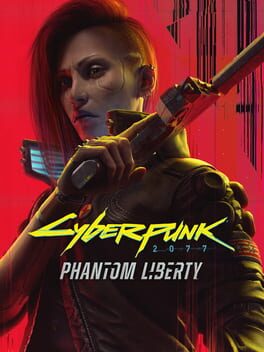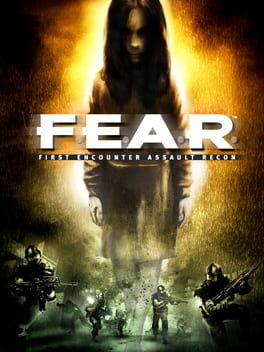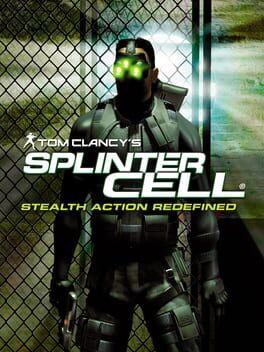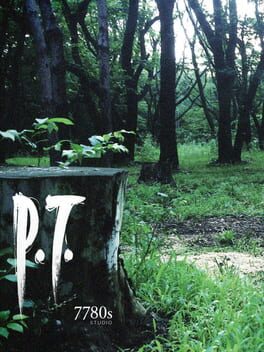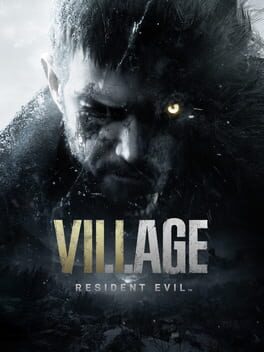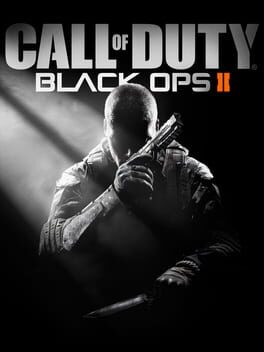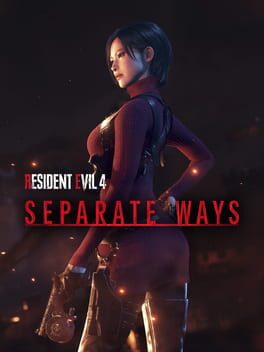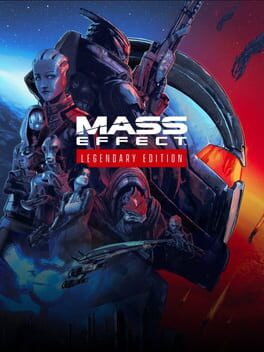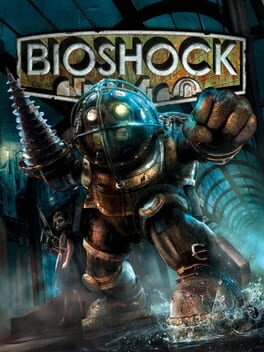Roy_Cybertron
40 reviews liked by Roy_Cybertron
F.E.A.R.
2005
🇧🇷
"Tom Clancy's Splinter Cell Stealth Action Redefined" faz exatamente oque diz
Tom Clancy’s Splinter Cell é um jogo feito para aquele cara que quando era criança se esgueirava pela casa com a luz apagada, esperando nos lugares mais escuros e sabendo todas as superfícies onde seus passos não fariam barulho no azulejo, sou eu, eu sou esse cara.
Splinter Cell tem um Stealth único, diferente na sua própria forma, ele é mais realista que os demais (tão realista quanto pode ser, pelo menos) e até um pouco tático, em nenhum outro jogo luz e sombras foi tão importante quanto aqui, as fases são claustrofóbicas com poucas chances de se livrar do inimigo, com você muitas vezes tendo que passar por entre eles na escuridão, essa imaginação de se esconder a plena vista é oque alimenta a gameplay de momento a momento, e o que o torna singular.
A história de Splinter é muito complicada e, ao mesmo tempo, tem pouca exposição, se você tentar entender algo além do quadro geral ficará confuso num conflito internacional político que envolve países demais, super armas nucleares e personagens secundários rasos, exceto por Sam Fisher e Lambert, mesmo tendo pouco tempo de fala se comparado a jogos futuros, Michael Ironside casou perfeitamente com Sam e o tornou icônico a primeiro momento, é uma daquelas atuações insubstituíveis, ele é para Sam Fisher oque James McCaffrey é para Max Payne.
As fases de Splinter Cell oferecem muitos momentos memoráveis, em uma fase você estará atravessando um pátio militar usando seus óculos de visão térmica para ver minas terrestres, no outro estará invadindo a sede da CIA para sequestrar um espião inimigo, porém, as fases são bastante lineares, oferecendo sempre uma única forma de atravessar o ambiente, também faltou mais variedade de locais, tirando alguns que se destacam como a refinaria de óleo e a embaixada chinesa há muitos cenários com escritórios que acabam se tornando difíceis de diferenciar, oque está a mostra é bom, mas podia ser bem melhor, ainda mais se comparado a jogos futuros.
Por causa dessa linearidade, o jogo acaba se apoiando bastante em tentativa e erro, esse tipo de coisa está presente em quase todo jogo Stealth, mas aqui a frustração pode ser demais até para fãs do gênero.
Como se passaram 22 anos desde que lançou, Splinter Cell hoje em dia é bastante datado, modelos de personagem são pouco detalhados e as fases falham em mascarar as limitações da época, porém, há vários detalhes que ainda impressionam, as sombras do jogo são exemplares até hoje, além de ter um sistema de som muito elogiado, os desenvolvedores tentaram adicionar muita interatividade em várias salas, Metal Gear Solid 2 podia ter cubos de gelo que derretiam em tempo real, mas Splinter Cell tinha aquários de peixe que, quando atirados, sugam a água pelo buraco de bala até que o nível da água estabilize.
Mesmo tendo vários problemas, era bom ter jogos inteiramente dedicados ao Stealth para se jogar, e é interessante ver como a franquia começou, alguns jogos do gênero podem ser melhores e mais inovadores, mas nenhum era como Splinter Cell, por isso digo que o subtítulo do jogo faz oque diz, a Ubisoft criou um novo estilo de Stealth, mais realista e com mais ênfase em luz e sombra, ele redefiniu o que era Stealth em 2002 e o que ele poderia ser.
Hoje em dia, stealth é apenas um elemento de vários jogos AAA, é raro ter jogos focados em querer passar despercebido ao invés de atirar neles, por isso é tão importante reconhecer as qualidades de Splinter Cell, quando você está colado na parede com apenas o suficiente de sombra para te esconder e há um guarda a um suspiro de distância, rezando para ele não te perceber, o jogo consegue criar um suspense que não se encontra em nenhum lugar a não ser talvez, em jogos de terror.
Splinter Cell pode dever sua existência a Metal Gear Solid, mas isso não o torna menos original.
O BOM
• Sombras e luz impressionantes para época
• Movimentação e mobilidade com profundidade
• Várias situações memoráveis e desafiadoras
• Personagem principal marcante
O RUIM
• Muita linearidade
• Datado em algumas áreas
• História desnecessariamente complicada
• Seções de combate obrigatórias
___________________________________________________________
🇺🇸
"Tom Clancy's Splinter Cell Stealth Action Redefined" does exactly what it says.
Tom Clancy's Splinter Cell is a game made for the guy who, as a kid, would sneak around the house with the lights off, waiting in the darkest places, knowing all the surfaces where his footsteps wouldn't make a sound on the tiles, that's me, I'm that guy.
Splinter Cell has a unique stealth system, different in its own way, it's more realistic than the others (as realistic as it can be, anyway) and even a little tactical, in no other game has light and shadow been as important as it is here, the stages are claustrophobic with few chances to get rid of the enemy, you often have to pass between them in the dark. This idea of hiding in plain sight is what makes the game so unique from moment to moment.
Splinter's story is very complicated and at the same time has little exposition, if you try to understand anything beyond the big picture you'll get lost in an international political conflict that involves too many countries, super nuclear weapons and shallow secondary characters, except for Sam Fisher and Lambert, even if he has little speaking time compared to future games, Michael Ironside married Sam perfectly and made him iconic at first, it's one of those irreplaceable performances, he is to Sam Fisher what James McCaffrey is to Max Payne.
The campaign offers many memorable moments, in one stage you'll be crossing a military courtyard using your thermal goggles to see landmines, in another you'll be breaking into CIA headquarters to kidnap an enemy spy, but the stages are fairly linear, and there's also a lack of variety in the locations, Apart from a few that stand out, such as the oil refinery and the Chinese embassy, there are many scenarios with offices that end up being difficult to distinguish from one another. What's on show is good, but it could be much better, even more so when compared to future games.
Because of this linearity, the game ends up relying a lot on trial and error, something that is present in almost every stealth game, but here the frustration can be too much even for fans of the genre.
Twenty-two years on from its original release, Splinter Cell has become a bit dated, with character models lacking detail and stages that fail to hide the limitations of the time, but there are some details that still stand out, and the game's shadows remain exemplary to this day. Metal Gear Solid 2 could have ice cubes that melted in real time, but Splinter Cell had fish tanks that, when shot, sucked water through the bullet hole until the water level stabilised.
Even though it had a lot of problems, it was good to have games that were entirely dedicated to stealth, and it's interesting to see how the franchise started, some games in the genre may be better and more innovative, but none were like Splinter Cell, that's why I say the subtitle of the game does what it says, Ubisoft created a new style of stealth, more replayable.
Even though it had a lot of problems, it was good to have games that were entirely dedicated to stealth, and it's interesting to see how the franchise started, some games in the genre may be better and more innovative, but none were like Splinter Cell, that's why I say the subtitle of the game does what it says, Ubisoft created a new style of stealth, more realistic and with more emphasis on light and shadow, it redefined what stealth was in 2002 and what it could be.
Nowadays, stealth is just one element of many AAA games, it's rare to have games that focus on trying to go unnoticed rather than shooting at you, which is why it's so important to recognise Splinter Cell's qualities. When you're pinned to a wall, with just enough shadow to hide you, and a guard a breath away, praying he doesn't notice you, the game manages to create a tension that you don't find anywhere else, except perhaps in horror games.
Splinter may owe its existence to Metal Gear Solid, but that doesn't make it any less original.
THE GOOD
- Impressive shadows and lighting for the time.
- Movement and mobility with depth
- Several memorable and challenging situations
- Outstanding main character
THE BAD
- Too much linearity
- Dated in some areas
- Unnecessarily complicated story
- Obligatory combat sections
"Tom Clancy's Splinter Cell Stealth Action Redefined" faz exatamente oque diz
Tom Clancy’s Splinter Cell é um jogo feito para aquele cara que quando era criança se esgueirava pela casa com a luz apagada, esperando nos lugares mais escuros e sabendo todas as superfícies onde seus passos não fariam barulho no azulejo, sou eu, eu sou esse cara.
Splinter Cell tem um Stealth único, diferente na sua própria forma, ele é mais realista que os demais (tão realista quanto pode ser, pelo menos) e até um pouco tático, em nenhum outro jogo luz e sombras foi tão importante quanto aqui, as fases são claustrofóbicas com poucas chances de se livrar do inimigo, com você muitas vezes tendo que passar por entre eles na escuridão, essa imaginação de se esconder a plena vista é oque alimenta a gameplay de momento a momento, e o que o torna singular.
A história de Splinter é muito complicada e, ao mesmo tempo, tem pouca exposição, se você tentar entender algo além do quadro geral ficará confuso num conflito internacional político que envolve países demais, super armas nucleares e personagens secundários rasos, exceto por Sam Fisher e Lambert, mesmo tendo pouco tempo de fala se comparado a jogos futuros, Michael Ironside casou perfeitamente com Sam e o tornou icônico a primeiro momento, é uma daquelas atuações insubstituíveis, ele é para Sam Fisher oque James McCaffrey é para Max Payne.
As fases de Splinter Cell oferecem muitos momentos memoráveis, em uma fase você estará atravessando um pátio militar usando seus óculos de visão térmica para ver minas terrestres, no outro estará invadindo a sede da CIA para sequestrar um espião inimigo, porém, as fases são bastante lineares, oferecendo sempre uma única forma de atravessar o ambiente, também faltou mais variedade de locais, tirando alguns que se destacam como a refinaria de óleo e a embaixada chinesa há muitos cenários com escritórios que acabam se tornando difíceis de diferenciar, oque está a mostra é bom, mas podia ser bem melhor, ainda mais se comparado a jogos futuros.
Por causa dessa linearidade, o jogo acaba se apoiando bastante em tentativa e erro, esse tipo de coisa está presente em quase todo jogo Stealth, mas aqui a frustração pode ser demais até para fãs do gênero.
Como se passaram 22 anos desde que lançou, Splinter Cell hoje em dia é bastante datado, modelos de personagem são pouco detalhados e as fases falham em mascarar as limitações da época, porém, há vários detalhes que ainda impressionam, as sombras do jogo são exemplares até hoje, além de ter um sistema de som muito elogiado, os desenvolvedores tentaram adicionar muita interatividade em várias salas, Metal Gear Solid 2 podia ter cubos de gelo que derretiam em tempo real, mas Splinter Cell tinha aquários de peixe que, quando atirados, sugam a água pelo buraco de bala até que o nível da água estabilize.
Mesmo tendo vários problemas, era bom ter jogos inteiramente dedicados ao Stealth para se jogar, e é interessante ver como a franquia começou, alguns jogos do gênero podem ser melhores e mais inovadores, mas nenhum era como Splinter Cell, por isso digo que o subtítulo do jogo faz oque diz, a Ubisoft criou um novo estilo de Stealth, mais realista e com mais ênfase em luz e sombra, ele redefiniu o que era Stealth em 2002 e o que ele poderia ser.
Hoje em dia, stealth é apenas um elemento de vários jogos AAA, é raro ter jogos focados em querer passar despercebido ao invés de atirar neles, por isso é tão importante reconhecer as qualidades de Splinter Cell, quando você está colado na parede com apenas o suficiente de sombra para te esconder e há um guarda a um suspiro de distância, rezando para ele não te perceber, o jogo consegue criar um suspense que não se encontra em nenhum lugar a não ser talvez, em jogos de terror.
Splinter Cell pode dever sua existência a Metal Gear Solid, mas isso não o torna menos original.
O BOM
• Sombras e luz impressionantes para época
• Movimentação e mobilidade com profundidade
• Várias situações memoráveis e desafiadoras
• Personagem principal marcante
O RUIM
• Muita linearidade
• Datado em algumas áreas
• História desnecessariamente complicada
• Seções de combate obrigatórias
___________________________________________________________
🇺🇸
"Tom Clancy's Splinter Cell Stealth Action Redefined" does exactly what it says.
Tom Clancy's Splinter Cell is a game made for the guy who, as a kid, would sneak around the house with the lights off, waiting in the darkest places, knowing all the surfaces where his footsteps wouldn't make a sound on the tiles, that's me, I'm that guy.
Splinter Cell has a unique stealth system, different in its own way, it's more realistic than the others (as realistic as it can be, anyway) and even a little tactical, in no other game has light and shadow been as important as it is here, the stages are claustrophobic with few chances to get rid of the enemy, you often have to pass between them in the dark. This idea of hiding in plain sight is what makes the game so unique from moment to moment.
Splinter's story is very complicated and at the same time has little exposition, if you try to understand anything beyond the big picture you'll get lost in an international political conflict that involves too many countries, super nuclear weapons and shallow secondary characters, except for Sam Fisher and Lambert, even if he has little speaking time compared to future games, Michael Ironside married Sam perfectly and made him iconic at first, it's one of those irreplaceable performances, he is to Sam Fisher what James McCaffrey is to Max Payne.
The campaign offers many memorable moments, in one stage you'll be crossing a military courtyard using your thermal goggles to see landmines, in another you'll be breaking into CIA headquarters to kidnap an enemy spy, but the stages are fairly linear, and there's also a lack of variety in the locations, Apart from a few that stand out, such as the oil refinery and the Chinese embassy, there are many scenarios with offices that end up being difficult to distinguish from one another. What's on show is good, but it could be much better, even more so when compared to future games.
Because of this linearity, the game ends up relying a lot on trial and error, something that is present in almost every stealth game, but here the frustration can be too much even for fans of the genre.
Twenty-two years on from its original release, Splinter Cell has become a bit dated, with character models lacking detail and stages that fail to hide the limitations of the time, but there are some details that still stand out, and the game's shadows remain exemplary to this day. Metal Gear Solid 2 could have ice cubes that melted in real time, but Splinter Cell had fish tanks that, when shot, sucked water through the bullet hole until the water level stabilised.
Even though it had a lot of problems, it was good to have games that were entirely dedicated to stealth, and it's interesting to see how the franchise started, some games in the genre may be better and more innovative, but none were like Splinter Cell, that's why I say the subtitle of the game does what it says, Ubisoft created a new style of stealth, more replayable.
Even though it had a lot of problems, it was good to have games that were entirely dedicated to stealth, and it's interesting to see how the franchise started, some games in the genre may be better and more innovative, but none were like Splinter Cell, that's why I say the subtitle of the game does what it says, Ubisoft created a new style of stealth, more realistic and with more emphasis on light and shadow, it redefined what stealth was in 2002 and what it could be.
Nowadays, stealth is just one element of many AAA games, it's rare to have games that focus on trying to go unnoticed rather than shooting at you, which is why it's so important to recognise Splinter Cell's qualities. When you're pinned to a wall, with just enough shadow to hide you, and a guard a breath away, praying he doesn't notice you, the game manages to create a tension that you don't find anywhere else, except perhaps in horror games.
Splinter may owe its existence to Metal Gear Solid, but that doesn't make it any less original.
THE GOOD
- Impressive shadows and lighting for the time.
- Movement and mobility with depth
- Several memorable and challenging situations
- Outstanding main character
THE BAD
- Too much linearity
- Dated in some areas
- Unnecessarily complicated story
- Obligatory combat sections
P.T.
2014
Resident Evil 4
2023
This game is a perfect sequel to Resident Evil 7 and perfectly expands on the gameplay, story and characters without ever feeling like it's trying to be a replacement. This is very much a different beast.
Gone are the dank swamps of Louisiana, with the rotting houses and slimy walls, in this game we see a perfectly realised Gothic aesthetic bought to life in a terrifying package that truly feels like a worthy successor to both RE7 and RE4.
Except...
And here's where we go into spoilers so
[SPOILERS HERE, DO NOT READ PAST THIS, IF YOU DO THEN YOU'RE NOT ALLOWED TO BLAME ME FOR HAVING READ SPOILERS]
So, the elephant in the room, the final hour or so of the game, it's an extremely linear slog which basically takes the game straight back to the place we were story-wise at the end of RE6, which is am awful place to be. It's saved slightly by a pretty good final boss and an interesting implication from the game's post-credits scene.
Luckily, the final hour is so linear and so detached from the rest of the game that it's easy to take it seperately to the rest of the experience. If I were to recommend anything, I'd say to just stop playing the game after the third time you see Chris (in Heisenberg's factory), it's all downhill from there.
The other major issue is difficulty, I played the game on standard and didn't die more than 8 times, and more than a couple of those were intentional to reload my save (before I noticed the 'reset' button in the pause menu). The combat feels close to being difficult enough, if only the enemies attacked frequently enough to actually be a legitimate threat, but the puzzles are unforgivable, survival horror is a genre built on the quality of its puzzles, and in this I don't think I was stopped even once on a puzzle, on anything really. The game is a breeze, which is a real shame.
But it still manages to be scary, all thanks to some really good setpieces, enemy AI, level design and, the highlight of the whole experience, the art design. And here we are now on the positives of the game.
Oh my god, the art design, I could gush for so long about every single enemy, every single location, everything is so dripping with atmosphere and personality and fear. And this is perfectly complimented by the sound design, which can be rocky at times with some really shoddy sound effects here and there, but most of the time the ambience and enemy sounds are just perfect.
I'd definitely recommend this game to anyone and everyone, and I'm tempted to bump it up by half a star once I get over my disappointment at some of the final story beats, but we'll see. Perhaps when I replay it, which I intend on doing, hardcore mode, on stream, I'll think better of it.
Gone are the dank swamps of Louisiana, with the rotting houses and slimy walls, in this game we see a perfectly realised Gothic aesthetic bought to life in a terrifying package that truly feels like a worthy successor to both RE7 and RE4.
Except...
And here's where we go into spoilers so
[SPOILERS HERE, DO NOT READ PAST THIS, IF YOU DO THEN YOU'RE NOT ALLOWED TO BLAME ME FOR HAVING READ SPOILERS]
So, the elephant in the room, the final hour or so of the game, it's an extremely linear slog which basically takes the game straight back to the place we were story-wise at the end of RE6, which is am awful place to be. It's saved slightly by a pretty good final boss and an interesting implication from the game's post-credits scene.
Luckily, the final hour is so linear and so detached from the rest of the game that it's easy to take it seperately to the rest of the experience. If I were to recommend anything, I'd say to just stop playing the game after the third time you see Chris (in Heisenberg's factory), it's all downhill from there.
The other major issue is difficulty, I played the game on standard and didn't die more than 8 times, and more than a couple of those were intentional to reload my save (before I noticed the 'reset' button in the pause menu). The combat feels close to being difficult enough, if only the enemies attacked frequently enough to actually be a legitimate threat, but the puzzles are unforgivable, survival horror is a genre built on the quality of its puzzles, and in this I don't think I was stopped even once on a puzzle, on anything really. The game is a breeze, which is a real shame.
But it still manages to be scary, all thanks to some really good setpieces, enemy AI, level design and, the highlight of the whole experience, the art design. And here we are now on the positives of the game.
Oh my god, the art design, I could gush for so long about every single enemy, every single location, everything is so dripping with atmosphere and personality and fear. And this is perfectly complimented by the sound design, which can be rocky at times with some really shoddy sound effects here and there, but most of the time the ambience and enemy sounds are just perfect.
I'd definitely recommend this game to anyone and everyone, and I'm tempted to bump it up by half a star once I get over my disappointment at some of the final story beats, but we'll see. Perhaps when I replay it, which I intend on doing, hardcore mode, on stream, I'll think better of it.
Resident Evil 4
2023
I usually try my best to avoid giving kneejerk 5-star ratings, but for this game I don't even give a shit. This game is awesome. RE4, more than any other horror game I've ever seen, understands the need for paced-out scares and levity. RE4's cast hits unreal levels of charm. I coudn't go a few minutes without saying, out loud, "what the fuck" in pure, blissful awe at the way these characters are handled. If you'd told me a few years ago that my favorite RE4 character would be Ashley Graham, I wouldn't have believed you. What a triumph. It feels so nice for a game to really deliver on the legacy I'd associated with it for literally my entire conscious life.
When the Going Gets Gonk
I was an early supporter of Cyberpunk 2077 during its less than stellar launch in December of 2020. Even though I had an experience unfortunately filled with bugs that didn't run the best on a recently upgraded system, I loved the world and story that CD Projekt Red had crafted. I felt like Night City was one of, if not the most, enriching metropolitan locations of any game that I've played in my two-plus decades of PC Gaming. I think the criticism of the game's launch for last gen consoles and PC issues was warranted, but I also strongly believe a majority of healthy discourse for the game was lost in the internet anger and hid what made Cyberpunk special. For all intents and purposes, this review will not cover changes made in the 2.0 patch.
Now with the good faith of the anime and CDPR's commitment to pulling a No Man's Sky on Cyberpunk with the announcement of DLC to come, I got excited once more. I pledged that I would jump into Phantom Liberty with a new mind, no longer excusing any performance/mechanical issues and not blindly hoping for a remarkable experience. What I got in loading in and playing through the probably twenty hours of expansion was a reminder of how incredible CDPR is at constructing worlds that tell the narrative in their ambience, and at authoring characters whose relationships with the protagonist stretch far beyond the scope and expectation of your average video game.
Phantom Liberty felt like a part of the main game, and in a perfect world probably could be. Not only does the physical location of the DLC in Pacifica's Dogtown lie in the middle of the map of Night City, but tonally the degree of heinousity, treachery, and general scumbaggery of the characters within felt very true to the narrative already in place.
The narrative here is fantastic once more. As I usually do, I will evade embarking on narrative spoilers, but the amount of suspicious nuance in character motivation in Phantom Liberty leads to some incredible hard decisions that have monumental consequences on newly added endings to Cyberpunk 2077. I found myself frequently paused at decisions between helping two equally morally grey parties because I wanted to plan for any eventual fallback from supporting their campaigns. Am I going to assist in this person who has dragged me into deeper into a mess far beyond my comprehension under the guise that they will be able to help me? Or will I side with the party who is looking for the best interest of the State? It gets rough and it gets tough, and in true Cyberpunk fashion... there is no real winner. What decisions you make, what ending you come across will leave you feeling like dust in the wind. I felt equally crushed finishing Phantom Liberty as I did watching the anime, they really know how to take the emotional wind out of you.
There were so many special things that remind you how impressive the staging and environmental design of 2077 are within this DLC. Moments like where your conversations begin and end with Idris Elba's character Solomon Reed: a basketball court overlooking the dilapidated and defunded skyscrapers that stand tall over the downtrodden community. Another being the beginning sequence in which you are evading inquisitive opposition forces with the President of the NUSA, frequently peering over balconies engulfed in flames that feature paradiddles of rain collapsing through the concrete. It's the staging of these events within the DLC that are located all throughout that are easy reminds about how phenomenal the direction, writing, and choreography of this game and CDPR truly are. The ability to utilize environmental scale to aide in the telling of a story is something that propelled the Witcher from a standard low fantasy fare to one of the greatest works of the genre is present once more in Cyberpunk. Even if the distance travelled in the DLC feels a little small, because in truth it is, you are constantly reminded about how tiny of a cog you're V is in the machine that is Night City.
The experience was not without its frustrations though, but that's PC gaming in a nutshell in 2023 apparently (after playing Starfield to boot.) There were a few times within the main questline that missions would either not load, I would bug out of objectives, or I would be softlocked and couldn't move. These were nowhere near as egregious as they were in the base game closer to launch, but they did rub me the wrong way. The ultimate mission in the DLC (not counting the added missions to new endings) was beyond bugged for me, and the important enemy that is supposed to be your last match was completely non aggressive to me. This just felt... not great. I felt like the DLC story was heading to a climax that was manifesting into a monumental implosion of the interrelationships of its characters and then pop, the big bad that was sent after me wouldn't attack. My immersion wasn't completely ruined but it was tarnished in a way that is hard to ignore, and I didn't want to re-load the entire questline.
I strongly recommend Cyberpunk 2077 to anyone with a knack for science fiction and open worlds (and fans of Bladerunner,) and I'd say that Cyberpunk 2077: Phantom Liberty is a must play for fans of the base game.
I was an early supporter of Cyberpunk 2077 during its less than stellar launch in December of 2020. Even though I had an experience unfortunately filled with bugs that didn't run the best on a recently upgraded system, I loved the world and story that CD Projekt Red had crafted. I felt like Night City was one of, if not the most, enriching metropolitan locations of any game that I've played in my two-plus decades of PC Gaming. I think the criticism of the game's launch for last gen consoles and PC issues was warranted, but I also strongly believe a majority of healthy discourse for the game was lost in the internet anger and hid what made Cyberpunk special. For all intents and purposes, this review will not cover changes made in the 2.0 patch.
Now with the good faith of the anime and CDPR's commitment to pulling a No Man's Sky on Cyberpunk with the announcement of DLC to come, I got excited once more. I pledged that I would jump into Phantom Liberty with a new mind, no longer excusing any performance/mechanical issues and not blindly hoping for a remarkable experience. What I got in loading in and playing through the probably twenty hours of expansion was a reminder of how incredible CDPR is at constructing worlds that tell the narrative in their ambience, and at authoring characters whose relationships with the protagonist stretch far beyond the scope and expectation of your average video game.
Phantom Liberty felt like a part of the main game, and in a perfect world probably could be. Not only does the physical location of the DLC in Pacifica's Dogtown lie in the middle of the map of Night City, but tonally the degree of heinousity, treachery, and general scumbaggery of the characters within felt very true to the narrative already in place.
The narrative here is fantastic once more. As I usually do, I will evade embarking on narrative spoilers, but the amount of suspicious nuance in character motivation in Phantom Liberty leads to some incredible hard decisions that have monumental consequences on newly added endings to Cyberpunk 2077. I found myself frequently paused at decisions between helping two equally morally grey parties because I wanted to plan for any eventual fallback from supporting their campaigns. Am I going to assist in this person who has dragged me into deeper into a mess far beyond my comprehension under the guise that they will be able to help me? Or will I side with the party who is looking for the best interest of the State? It gets rough and it gets tough, and in true Cyberpunk fashion... there is no real winner. What decisions you make, what ending you come across will leave you feeling like dust in the wind. I felt equally crushed finishing Phantom Liberty as I did watching the anime, they really know how to take the emotional wind out of you.
There were so many special things that remind you how impressive the staging and environmental design of 2077 are within this DLC. Moments like where your conversations begin and end with Idris Elba's character Solomon Reed: a basketball court overlooking the dilapidated and defunded skyscrapers that stand tall over the downtrodden community. Another being the beginning sequence in which you are evading inquisitive opposition forces with the President of the NUSA, frequently peering over balconies engulfed in flames that feature paradiddles of rain collapsing through the concrete. It's the staging of these events within the DLC that are located all throughout that are easy reminds about how phenomenal the direction, writing, and choreography of this game and CDPR truly are. The ability to utilize environmental scale to aide in the telling of a story is something that propelled the Witcher from a standard low fantasy fare to one of the greatest works of the genre is present once more in Cyberpunk. Even if the distance travelled in the DLC feels a little small, because in truth it is, you are constantly reminded about how tiny of a cog you're V is in the machine that is Night City.
The experience was not without its frustrations though, but that's PC gaming in a nutshell in 2023 apparently (after playing Starfield to boot.) There were a few times within the main questline that missions would either not load, I would bug out of objectives, or I would be softlocked and couldn't move. These were nowhere near as egregious as they were in the base game closer to launch, but they did rub me the wrong way. The ultimate mission in the DLC (not counting the added missions to new endings) was beyond bugged for me, and the important enemy that is supposed to be your last match was completely non aggressive to me. This just felt... not great. I felt like the DLC story was heading to a climax that was manifesting into a monumental implosion of the interrelationships of its characters and then pop, the big bad that was sent after me wouldn't attack. My immersion wasn't completely ruined but it was tarnished in a way that is hard to ignore, and I didn't want to re-load the entire questline.
I strongly recommend Cyberpunk 2077 to anyone with a knack for science fiction and open worlds (and fans of Bladerunner,) and I'd say that Cyberpunk 2077: Phantom Liberty is a must play for fans of the base game.
This is exactly how the Second Run in RE2R should've been!
Separate Ways is an interesting spin on an already intriguing narrative paired with great gameplay and fun new mechanics (grappling hook!). The new bosses and levels are pretty amazing and it even comes with 50 new challenges AND new costumes for Ada and Luis!
Amazing value for just 10 bucks, an easy recommendation from my side.
Separate Ways is an interesting spin on an already intriguing narrative paired with great gameplay and fun new mechanics (grappling hook!). The new bosses and levels are pretty amazing and it even comes with 50 new challenges AND new costumes for Ada and Luis!
Amazing value for just 10 bucks, an easy recommendation from my side.
